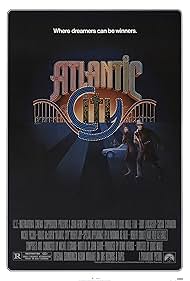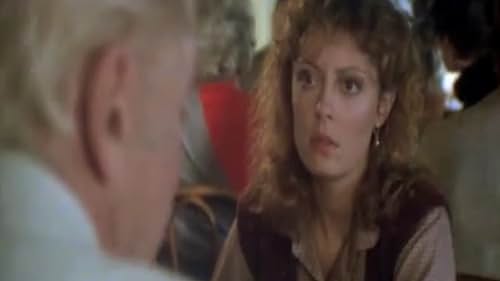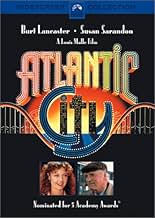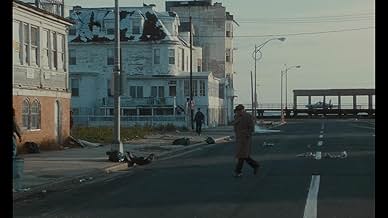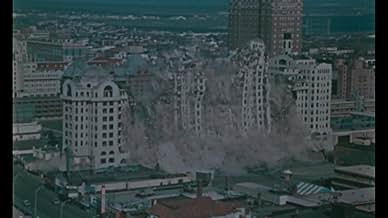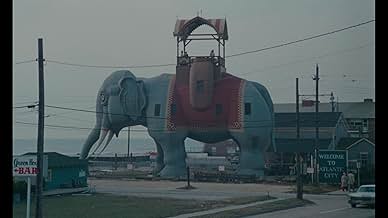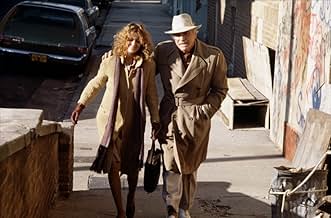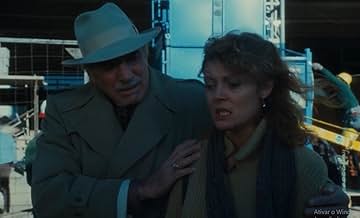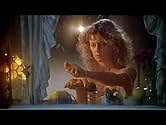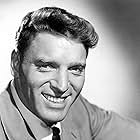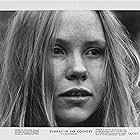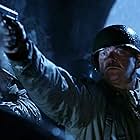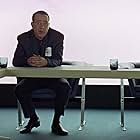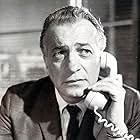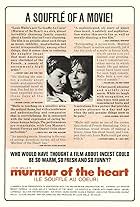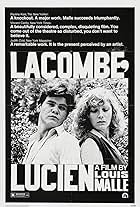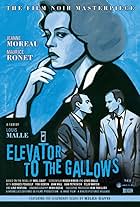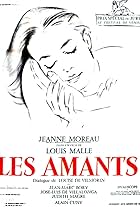In a corrupt city, a small-time gangster and the estranged wife of a pot dealer find themselves thrown together in an escapade of love, money, drugs and danger.In a corrupt city, a small-time gangster and the estranged wife of a pot dealer find themselves thrown together in an escapade of love, money, drugs and danger.In a corrupt city, a small-time gangster and the estranged wife of a pot dealer find themselves thrown together in an escapade of love, money, drugs and danger.
- Nominated for 5 Oscars
- 25 wins & 22 nominations total
Wallace Shawn
- Waiter
- (as Wally Shawn)
- Director
- Writer
- All cast & crew
- Production, box office & more at IMDbPro
Storyline
Did you know
- TriviaJust after filming ended Burt Lancaster nearly died during a routine gall bladder operation in January 1980, requiring multiple blood transfusions.
- GoofsNear the end of the film Grace tells Chrissie that they'd both lost their men to a shooting. But Chrissie's man was stabbed, not shot.
Chrissie didn't know that. If she didn't know, a Goof can't be charged against her.
- Crazy creditsAs the end credits roll, an old building on the boardwalk is demolished to some of the tunes that appear earlier in the film. Each time the wrecking ball hits, we hear a cymbal crash and the soundtrack jumps to a different song.
Featured review
Louis Malle, his cast, and his location really put this one over. It's well above the routine. Malle knows how to tell a story conventionally, without screaming shock effects or outsize explosions or in-your-face directorial banner headlines. When a pistol is fired, it doesn't boom like dirty Harry's. It simply pops unobtrusively. It all flows along smoothly. And it's aptly titled. The story is as much about Atlantic City as it is about the residents and visitors we meet. It's like a Robert Altman movie except that it has a fascinating narrative that draws us in.
We see the city first. A decrepit faux urban setting whose good days are long in the past. (Woodrow Wilson used to summer nearby.) It was called "the lungs of Philadelphia." It boomed as a summer resort before commercial airlines vulgarized travel and brought Miami and Bermuda within easy temporal reach of the Northeast corridor. The older apartment buildings, the ones with Queen Anne towers, are being demolished, to be replaced by the casinos that everyone assumes will bring prosperity back. (They never did. The money stayed in the casinos or went out of state.) But those sturdy old brick palaces were built to last and the apartments we see are shabby but cozy too. People have made nests in them over the years. The residents have accomodated their existences to the frames of the places they live in. People work in oyster bars, or run numbers in the falling-apart rubbish-strewn black neighborhoods. They can, if they have the money to do so, dine in reasonably good restaurants or stroll on the boardwalks, and we can almost hear the hoofbeats of yesteryear.
What modern Atlantic City is to its brassy past, Burt Lancaster is to his own history. He stalks the streets in his overcoat, wearing the only tie he owns, mutters things about how important he used to be, once having shared a cell with Bugsy Siegal. He used to have to kill people once in a while, he tells a young man confidentially. He always felt bad about it afterward and used to take a long swim in the ocean to feel clean again. "I never saw the Atlantic Ocean until today," says the kid. Lancaster turns around and looks out to sea and waves expansively. "You should of seen the ocean then," he says. "The Atlantic Ocean was really somethin' in them days." His glorious career, it turns out, has about the same epistemological status as that of the city he hasn't been outside of for the past twenty years. The Atlantic Ocean was really somethin' in them days. What a line! And Lancaster handles it well too. He's no Crimson Pirate here, just a quiet older guy with curly white hair trying to make a buck by running errands for small-time hoods, and trying to sell a silver cigarette case, a memento of his past, for "a double sawbuck." He looks exactly right too. Not "old," exactly, but well aged, like a mature burgundy. His generously featured face hasn't drooped with the passage of the years. His eyebrows are dark and set off his surprisingly gentle eyes. He doesn't clip off the terminal contours of his sentences, as he did before. It's a splendid performance.
His performance is matched by that of the other principle actors. There are some quietly amusing episodes between him and the woman he takes care of. (There is also a pretty gruesome lethal stabbing, although without blood.) Only the villains are one-dimensional villains. Susan Sarandon is marvelous as the young oyster-bar employee who wants to become a casino dealer, even if it means putting up with hits from the oily French guy who teaches the fine art of dealing in a school run by the casinos. He smokes with a cigarette holder and sounds like Charles Boyer, the swine. What a fine actress she is. Even here, dressed in threadbare clothes, her skirts around her ankles, wearing clumsy boots, her hair a mop of Scottish red, she fixes a viewer's interest when she's on the screen. She's as vulnerable under those oyster shells as Lancaster is when he discovers he can't protect her from the villains. And the two of them have a tender love scene together, and later a more raucous good time. In the end they go their separate ways -- Lancaster back to his destiny, and Sarandon in search of hers.
The characters in the film bounce around at first, at odds with one another, or simply unaware of the others' presence, but Malle draws them together into a community whose welfare we finally come to care about. It's a fine movie.
We see the city first. A decrepit faux urban setting whose good days are long in the past. (Woodrow Wilson used to summer nearby.) It was called "the lungs of Philadelphia." It boomed as a summer resort before commercial airlines vulgarized travel and brought Miami and Bermuda within easy temporal reach of the Northeast corridor. The older apartment buildings, the ones with Queen Anne towers, are being demolished, to be replaced by the casinos that everyone assumes will bring prosperity back. (They never did. The money stayed in the casinos or went out of state.) But those sturdy old brick palaces were built to last and the apartments we see are shabby but cozy too. People have made nests in them over the years. The residents have accomodated their existences to the frames of the places they live in. People work in oyster bars, or run numbers in the falling-apart rubbish-strewn black neighborhoods. They can, if they have the money to do so, dine in reasonably good restaurants or stroll on the boardwalks, and we can almost hear the hoofbeats of yesteryear.
What modern Atlantic City is to its brassy past, Burt Lancaster is to his own history. He stalks the streets in his overcoat, wearing the only tie he owns, mutters things about how important he used to be, once having shared a cell with Bugsy Siegal. He used to have to kill people once in a while, he tells a young man confidentially. He always felt bad about it afterward and used to take a long swim in the ocean to feel clean again. "I never saw the Atlantic Ocean until today," says the kid. Lancaster turns around and looks out to sea and waves expansively. "You should of seen the ocean then," he says. "The Atlantic Ocean was really somethin' in them days." His glorious career, it turns out, has about the same epistemological status as that of the city he hasn't been outside of for the past twenty years. The Atlantic Ocean was really somethin' in them days. What a line! And Lancaster handles it well too. He's no Crimson Pirate here, just a quiet older guy with curly white hair trying to make a buck by running errands for small-time hoods, and trying to sell a silver cigarette case, a memento of his past, for "a double sawbuck." He looks exactly right too. Not "old," exactly, but well aged, like a mature burgundy. His generously featured face hasn't drooped with the passage of the years. His eyebrows are dark and set off his surprisingly gentle eyes. He doesn't clip off the terminal contours of his sentences, as he did before. It's a splendid performance.
His performance is matched by that of the other principle actors. There are some quietly amusing episodes between him and the woman he takes care of. (There is also a pretty gruesome lethal stabbing, although without blood.) Only the villains are one-dimensional villains. Susan Sarandon is marvelous as the young oyster-bar employee who wants to become a casino dealer, even if it means putting up with hits from the oily French guy who teaches the fine art of dealing in a school run by the casinos. He smokes with a cigarette holder and sounds like Charles Boyer, the swine. What a fine actress she is. Even here, dressed in threadbare clothes, her skirts around her ankles, wearing clumsy boots, her hair a mop of Scottish red, she fixes a viewer's interest when she's on the screen. She's as vulnerable under those oyster shells as Lancaster is when he discovers he can't protect her from the villains. And the two of them have a tender love scene together, and later a more raucous good time. In the end they go their separate ways -- Lancaster back to his destiny, and Sarandon in search of hers.
The characters in the film bounce around at first, at odds with one another, or simply unaware of the others' presence, but Malle draws them together into a community whose welfare we finally come to care about. It's a fine movie.
- rmax304823
- Apr 1, 2003
- Permalink
- How long is Atlantic City?Powered by Alexa
Details
- Release date
- Countries of origin
- Languages
- Also known as
- Atlantic City, USA
- Filming locations
- Production companies
- See more company credits at IMDbPro
Box office
- Budget
- $7,200,000 (estimated)
- Gross US & Canada
- $12,729,675
- Gross worldwide
- $12,729,675
Contribute to this page
Suggest an edit or add missing content

